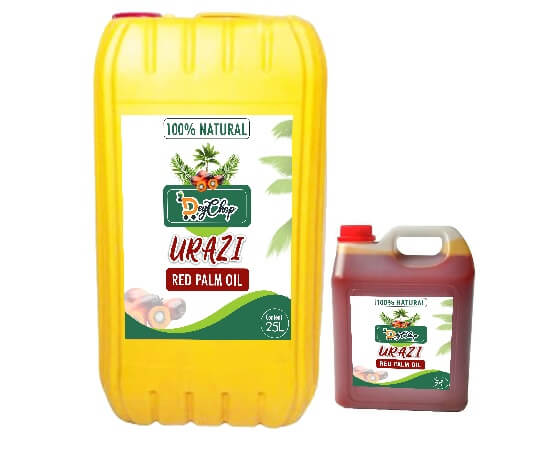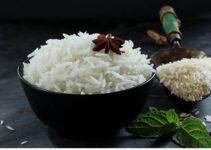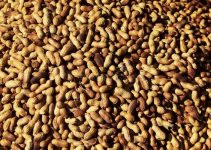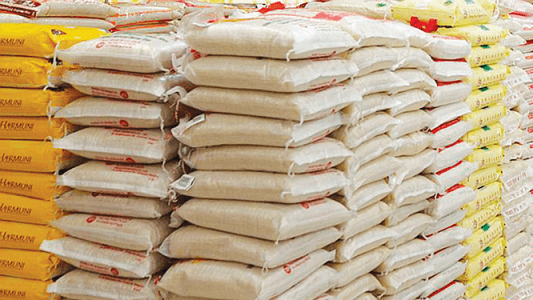Palm oil is one of the most essential food commodities in Nigeria. We use it to cook different kinds of foods as well as add it to the manufacture of several products. Palm oil presents the human body with several immense health benefits.
Nigerians package palm oil in litres with the most common sizes being 1 litre, 5 litres, 10 litres, 20 litres, and 25 litres. This post will focus on the prices of 25 liters of palm oil in Nigeria. We will tell you how much this commodity costs in some selected markets, the importance of palm oil, and the factors affecting the price of this commodity.

25 Liters Palm Oil Prices in Nigeria
We obtain palm oil from processing the fruits of palm trees. Aside from using this oil to cook food, we can process it industrially as an ingredient for items like candles and soaps. It is also used in making printing ink, drugs, and water treatment products.
That being said, before you purchase palm oil, you should first find out the current price on the market. Doing this gives you prior knowledge so that you don’t get cheated when you get to the market. This is why we decided to carry out a market survey on your behalf. Our survey has checked the current prices of 25 liters of palm oil in different markets around Lagos State and some other parts of the country. Check out our results in the list below:
- 25 litres palm oil in Mushin Market: From N30,000
- 25 litres palm oil in Daleko Market: From N30,000
- 25 litres palm oil in Aguda Market: From N30,000
- 25 litres palm oil in Mile 2 Market: From N30,000
- 25 litres palm oil in Abuja Market: From N41,000
- 25 litres palm oil in Port Harcourt Market: From N35,000
- 25 litres palm oil in Enugu Market: From N32,000
- 25 litres palm oil in Oyo Market: From N32,000
PRICES LAST UPDATED: MARCH 4, 2024.
These prices fluctuate due to several factors that we will discuss later in this post. Meanwhile, you can purchase 25 liters of palm oil from any local market around you. Alternatively, you can choose to buy from any of the online marketplaces in Nigeria. Note that, depending on where you purchase from, the prices may differ slightly.
Factors Affecting the Prices of Palm Oil in Nigeria
As mentioned above, the prices of palm oil fluctuate very frequently on the market. What are the factors that contribute to the instability of these prices? This section will shed some light on these factors.
Location
This is one of the main factors affecting the cost of palm oil in Nigeria. You will notice from our price list above that palm oil is cheaper in some parts of the country than it is in others. This is because palm oil isn’t produced in every part of the country. As such, it is cheaper in parts of the country closer to production points than in the other parts.
Seasons
This is another very important factor that affects the price of palm oil, not just in Nigeria, but all over the world. The palm tree doesn’t produce fruits all year round. When the fruits are harvested, the production of palm oil begins. The price of palm oil dips during this period and experts say this is the best time to buy, especially for commercial purposes. This period is usually between February and August every year. The prices rise steadily between September and January, with the highest prices experienced in December.
Market demand
While market demand isn’t one of the main price-determining factors, it still plays a major role in fixing the prices of palm oil in Nigeria. According to economics, prices of products increase with an increase in market demand and vice versa. So you would expect the cost of palm oil to increase with a rise in market demand. Again, this rise is usually experienced around December when there are more parties and festivities.
Health Benefits of Palm Oil
The consumption of palm oil is increasing all over the world. Chief among the reasons for this increase are the health benefits that accrue to the consumption of this product. Before we look at some of the health benefits of palm oil, let’s first define this product.
Palm oil is obtained from the fleshy fruits of palm trees. When it is unrefined, it has a reddish-orange colour, which is why we refer to it as red oil. This oil is largely produced in Western and Southwest Africa as well as in some parts of South America and Southeast Asia. Below are the nutrients present in a tablespoon of palm oil:
- Calories: 120
- Fat: 14 Grams
- Saturated Fat: 7 Grams
- Monounsaturated Fat: 5 Grams
- Polyunsaturated Fat: 1 Gram
- Vitamin E: 14% Of The Daily Value (DV)
With these out of the way, here are some of the main health benefits of eating palm oil:
Protects brain health
Palm oil is one of the best sources of tocotrienols (a type of vitamin E that is known for its strong antioxidant properties. Experts believe that this form of vitamin E plays a major role in supporting brain health. Several tests have been carried out on humans and they reveal that tocotrienols help to prevent brain lesions, slow down dementia, and reduce the risk of developing stroke.
Improves heart health
Palm oil is also renowned for its positive influence on heart health. This oil is said to have several beneficial effects on the heart such as increasing good cholesterol and decreasing bad cholesterol. While these effects may not entirely mean the absence of heart diseases, they contribute majorly to better heart health.
High vitamin A
Many people with vitamin A deficiencies are advised to consume more palm oil. The reason for this is that this oil is very rich in carotenoids. The human body converts these carotenoids into vitamin A. It has been observed that palm oil supplementation helps to increase vitamin A levels in adults and children.





